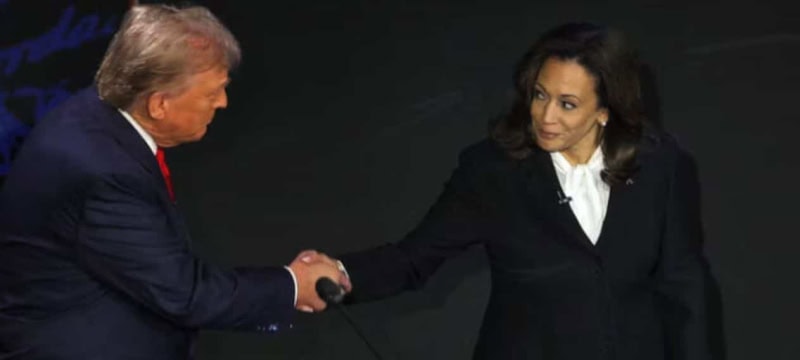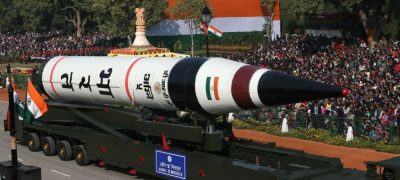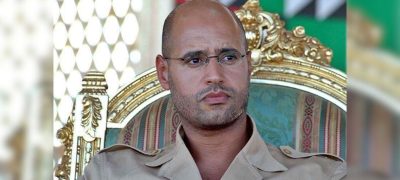At a contentious presidential debate, U.S. Vice President Kamala Harris placed former President Donald Trump on the defensive with a series of sharp criticisms targeting his stance on abortion, his fitness for office, and his various legal issues. Both candidates aimed for a pivotal moment in the tightly contested race.
In a significant boost for Harris, pop star Taylor Swift endorsed her and her running mate Tim Walz on Instagram right after the debate, reaching her 283 million followers. Swift’s post quickly gained nearly two million likes in under half an hour.
Read more: Kamala Harris Concludes Convention Urging End to Gaza Conflict
Harris, 59, a former prosecutor, repeatedly agitated Trump, 78, who responded angrily with a string of rebuttals, some laden with falsehoods. At one point, Harris mocked Trump’s campaign rallies, claiming people often leave due to “exhaustion and boredom.” Trump, frustrated by the size of Harris’ crowds, defended his events, asserting they were the “biggest and most incredible” in political history before pivoting to an unverified claim about Haitian immigrants in Ohio.
The debate, which touched on immigration, foreign policy, and healthcare, lacked detailed policy discussion. Instead, Harris’ assertive approach shifted the spotlight onto Trump, leaving her supporters elated and some Republicans acknowledging his struggles.
Marc Short, former chief of staff for Vice President Mike Pence, criticized Trump’s performance, saying he failed to stay focused on key issues like the economy and immigration, instead chasing Harris’ provocations.
The debate appeared to impact public sentiment, with online prediction markets showing Trump’s odds of winning the election dropping, while Harris’ chances improved. Harris’ campaign, buoyed by her performance, immediately challenged Trump to a second debate.
Though Trump initially avoided personal attacks, he became more agitated as the debate progressed. He faced a question about his previous racist comment directed at Harris, to which he dismissively responded, “I couldn’t care less.” Harris, of Black and South Asian heritage, condemned Trump for attempting to use race to divide Americans throughout his career.
She also attacked Trump over his legal troubles, including his criminal conviction and accusations of sexual misconduct, which he denies. Trump, in turn, repeated his false claims about election fraud and called Harris a “Marxist.”
With just eight weeks remaining before the election, and early voting approaching, the debate marked a high-stakes moment for both candidates in front of a vast television audience.
A Surprise Handshake
The debate began at 9 p.m. ET (0100 GMT on Wednesday) with a surprising handshake between Kamala Harris and Donald Trump, who had never met before. Harris initiated the greeting, introducing herself, marking the first handshake at a presidential debate since 2016.
The event was particularly significant for Harris, as polls indicated that over a quarter of likely voters felt they didn’t know enough about her. Having entered the race just seven weeks ago after President Joe Biden withdrew, Harris aimed to make a strong impression.
Harris delivered a passionate critique of abortion restrictions, highlighting the impact on women denied emergency care and victims of incest who couldn’t access abortions due to state bans. She also accused Trump of supporting a national abortion ban, which he denied but stopped short of explicitly saying he would veto such legislation.
Trump, who has often struggled with his stance on abortion, falsely claimed that Harris and the Democrats support infanticide, a charge that moderator Linsey Davis pointed out is illegal in all states.
Harris also linked Trump to Project 2025, a conservative agenda that includes expanding executive power, rolling back environmental protections, and restricting access to abortion pills across state lines. Trump denied any involvement with the plan, despite some of his advisers being connected to its development.
Republican strategist Ron Bonjean noted that while Trump “didn’t do himself any favors” in the debate, it remains uncertain whether Harris’ performance will shift the race’s dynamics, as the majority of voters have already made up their minds.
Clashes on Economy, Foreign Policy
The debate began with a focus on the economy, a topic where polls suggest Trump has an advantage. Harris criticized Trump’s plan to implement high tariffs on foreign goods, comparing it to a sales tax on the middle class. She also promoted her proposal to provide tax benefits for families and small businesses.
Trump, in turn, blamed Harris for ongoing inflation under the Biden administration, though he exaggerated the rate of price increases. He claimed that inflation had been disastrous for all economic classes.
The two also sparred over the Israel-Gaza conflict and the war in Ukraine, though neither provided specific plans for resolving the crises. Harris accused Trump of being willing to sacrifice U.S. support for Ukraine to gain favor with Russian President Vladimir Putin, calling him a “disgrace.” Trump countered by accusing Harris of “hating” Israel, a claim she denied.
While debates don’t always sway voters, they can have significant impacts. Biden’s poor performance in a June debate with Trump led to him withdrawing from the race in July.
In a close election, with polls showing the candidates neck and neck in key battleground states, even small changes in public opinion could make a difference. The debate, held at the National Constitution Center in Philadelphia and hosted by News, was conducted without a live audience, and microphones were muted when it was not the candidates’ turn to speak.









